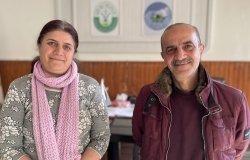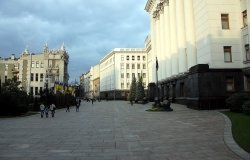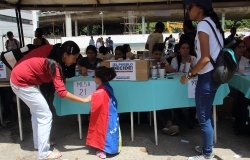The Gorilla in the Room: the 2012 Parliamentary Elections in Slovakia
Early parliamentary elections were called in Slovakia following the collapse of the center-right government led by Iveta Radicova. Although the fall of the government was precipitated by disagreements in the coalition over the euro bailout, the campaign has been dominated by accusations of corruption and shady links between leading politicians and businessmen in the so-called "Gorilla file". Not only have the allegations in the Gorilla file provoked mass demonstrations across the country, but have led to the popularity of some of Slovakia's most prominent parties to slump and have fuelled support for new parties and groupings. Haughton’s presentation will seek to explain the results of the elections. It will argue that these elections are illustrative of broader trends and developments across Central and Eastern Europe, particularly the emergence of new parties and the increasing salience of corruption in political parties' appeals in the region.
Overview
Early parliamentary elections were called in Slovakia following the collapse of the center-right government led by Iveta Radicova. Although the fall of the government was precipitated by disagreements in the coalition over the euro bailout, the campaign has been dominated by accusations of corruption and shady links between leading politicians and businessmen in the so-called "Gorilla file". Not only have the allegations in the Gorilla file provoked mass demonstrations across the country, but have led to the popularity of some of Slovakia's most prominent parties to slump and have fuelled support for new parties and groupings. Haughton’s presentation will seek to explain the results of the elections. It will argue that these elections are illustrative of broader trends and developments across Central and Eastern Europe, particularly the emergence of new parties and the increasing salience of corruption in political parties' appeals in the region.
Tim Haughton is a Senior Lecturer of Politics of Central and Eastern Europe at the University of Birmingham and Austrian Marshall Plan Foundation Fellow at Johns Hopkins University's School of Advanced International Studies. He joined the University of Birmingham in 2003, before which he taught at the School of Slavonic and East European Studies at University College London, Sheffield University, and Comenius University. As a Fellow at Johns Hopkins he is researching party politics in Central and Eastern Europe, specifically seeking an explanation for the extent, timing, and variation in party politics stability. He is a widely published political scientist with special interest in the Czech and Slovak Republics, the interaction between domestic and European sources of change, as well as the role of the past in the politics of the present. Haughton has held Visiting Fellowships at the Institute for Human Sciences in Vienna, the Institute of International Relations in Prague and at Harvard University’s Center for European Studies. Along with Nathaniel Copsey, he is the joint editor of the Journal of Common Market Studies’ Annual Review of the European Union. Recent publications include Party Politics in Central and Eastern Europe: Does EU membership Matter? (2011, editor) and author of Half Full But Also Half Empty: Conditionality, Compliance and the Quality of Democracy in Central and Eastern Europe (2011, author).
Speaker
Tim Haughton
Hosted By

Global Europe Program
The Global Europe Program is focused on Europe’s capabilities, and how it engages on critical global issues. We investigate European approaches to critical global issues. We examine Europe’s relations with Russia and Eurasia, China and the Indo-Pacific, the Middle East and Africa. Our initiatives include “Ukraine in Europe” – an examination of what it will take to make Ukraine’s European future a reality. But we also examine the role of NATO, the European Union and the OSCE, Europe’s energy security, transatlantic trade disputes, and challenges to democracy. The Global Europe Program’s staff, scholars-in-residence, and Global Fellows participate in seminars, policy study groups, and international conferences to provide analytical recommendations to policy makers and the media. Read more
Thank you for your interest in this event. Please send any feedback or questions to our Events staff.











